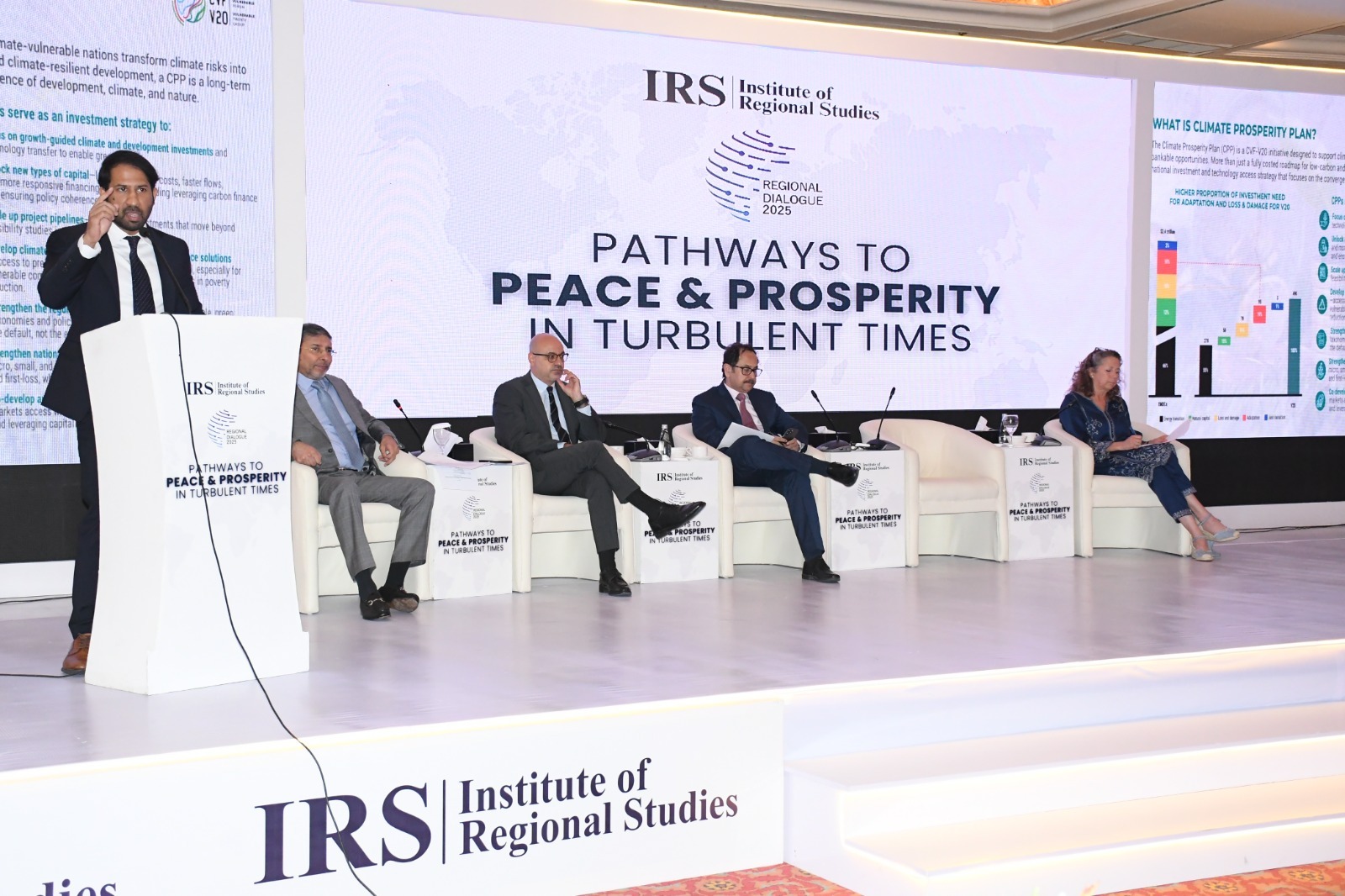Regional Dialogue 2025 Calls for Cooperation to Tackle Climate Vulnerabilities in South Asia

The Institute of Regional Studies (IRS) hosted the 4th Annual Regional Dialogue 2025, in Islamabad on 5 May. The dialogue, titled ‘Pathways to Peace and Prosperity in Turbulent Times’ saw policymakers and experts calling for urgent regional cooperation in tackling the escalating climate vulnerabilities of South Asian countries.
Emphasizing that Pakistan is amongst the world’s top ten most climate vulnerable countries, the President of IRS, Ambassador Jauhar Saleem, stressed the importance of Pakistan’s efforts in climate action, building resilience and mobilizing climate finance.
The event featured panel discussions centered around how climate impacts are exacerbating vulnerabilities, particularly in countries like Pakistan. During these discussions, the event drew attention to the 2022 floodings in Pakistan which caused USD $30 billion in damages and called for equitable climate finance to implement resilience strategies.
Presentations during the event showcased frameworks and initiatives that are critical for climate prosperity. A presentation by Philip Gass, Director of the International Institute for Sustainable Development (IISD), stressed the need for a socially inclusive energy transition and introduced the ‘Just Transition’ framework that ensures equitable energy access.
Speaking at the event, CVF-V20’s Regional Director for South Asia, Hamza Haroon, raised concerns that some of the greatest challenges facing climate vulnerable countries are heavy debt burdens and prohibitively high capital costs. As a tool for addressing these concerns, he introduced the CVF-V20’s flagship initiative – Climate Prosperity Plans. He called for country platforms that can support a programmatic, country-led approach to the implementation of Climate Prosperity Plans.
This article is featured in our May newsletter. Click here to read the full issue.
